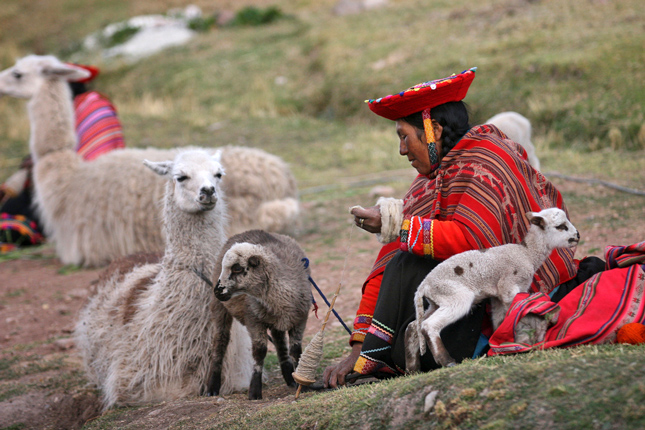-
Jacob Glass, PassBlue
New Investment Law in Peru Undermines Rights of Indigenous Women
August 22, 2014 By Wilson Center Staff
A new law in Peru encouraging investment in the country’s extractive industries has reignited debate on the lack of power indigenous women have in the mostly rural societies where they often live. The International Indigenous Women’s Forum, which drew more than 60 native women from across the world to Peru last month, highlighted this important issue.
The forum coincided with the approval of Bill 3627/2013-PE by the Peruvian Congress last month; the new law that has drawn sharp criticism from both human rights and environmental groups in the country and worldwide. The law restricts audits by the Ministry of Environment, changes ecologic zoning regulations, reduces the number of days for environmental impact studies to 45, and complicates the process that preserves natural areas.
Support for the law comes as Peru’s political and business elites attempt to reassure foreign investors that the country’s economy will maintain the six percent growth rate it has averaged over the last 10 years, amid signs that the decade-long boom may be fizzling. Specifically, the legislation aims to stimulate Peru’s sputtering mining industry – particularly copper and gold production – by creating a regulatory environment more favorable to resource extraction. It also occurs as many nations contend with ways to make the mining and oil extraction industry – primarily in Africa – more open so that income from those sources are distributed more equitably to the people and poverty is reduced.
Sources: Americas Tax Center, Bloomberg, Trading Economics.
Photo Credit: A woman near Tambomachay, Peru, courtesy of flickr user Nathan Gibbs.
 A Publication of the Stimson Center.
A Publication of the Stimson Center.



